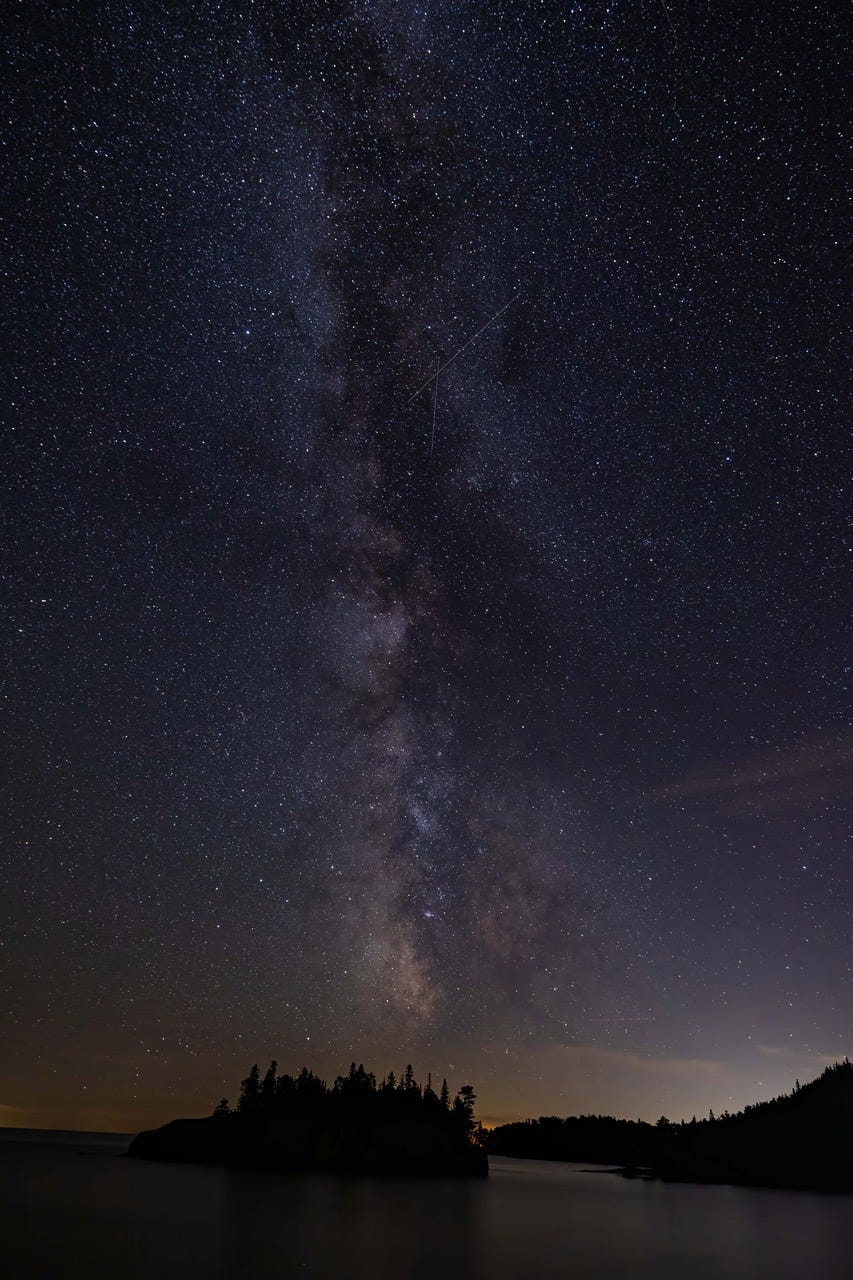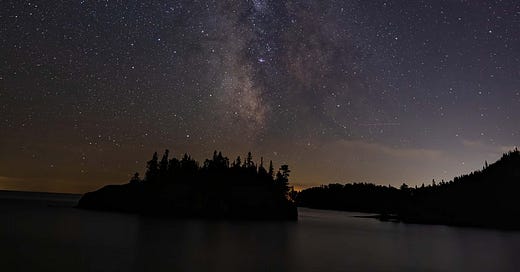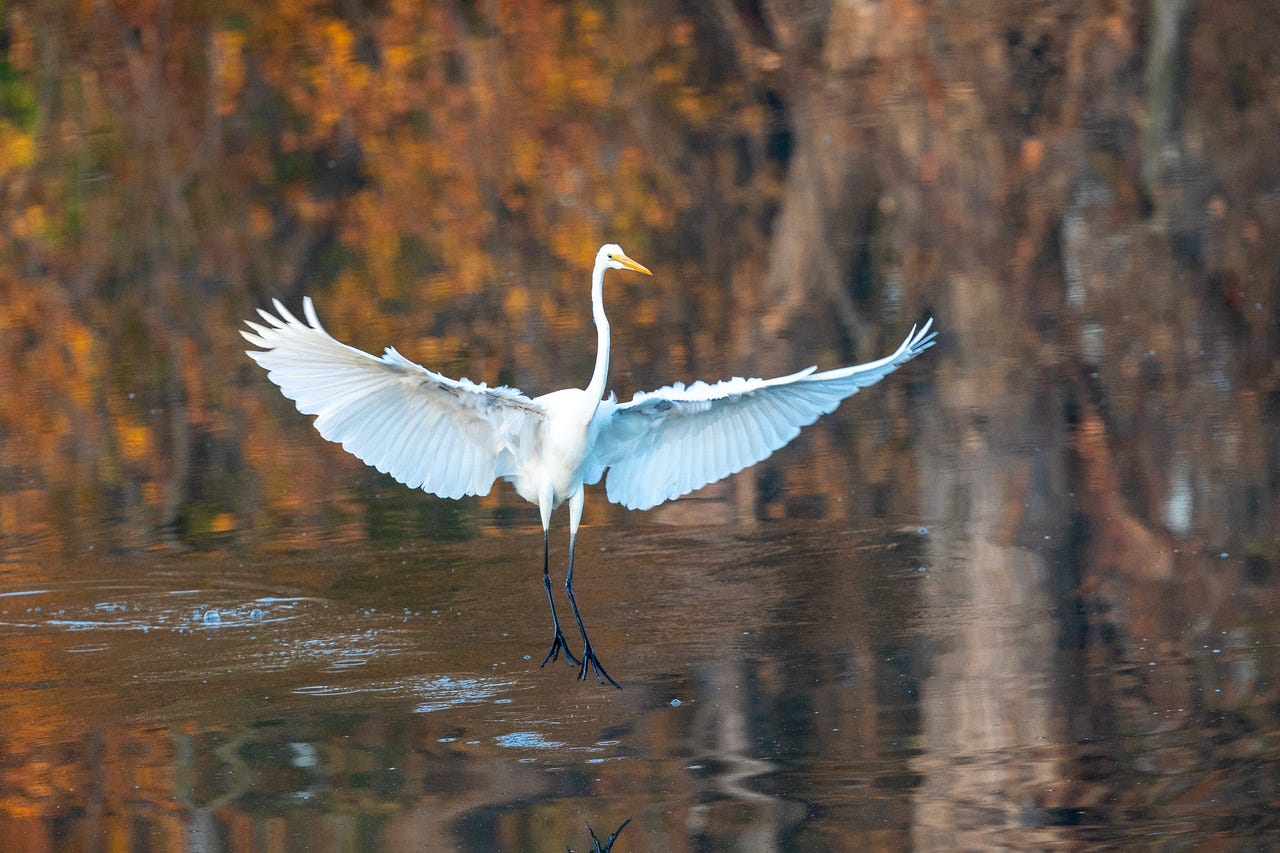Greetings from balmy Iowa! We’re celebrating spring break this week by visiting my parents and it’s almost 70 degrees out this week, so it’s basically Florida. Between conversations with my parents and hiking by the river an essay and a poem bubbled up. They’re a bit rough around the edges since I’m on vacation.
My grandmother, Rita, is approaching her 90th year. She has always had a calm, beautiful, humble spirit. As she has aged, you can feel the gravity of her peace when she enters the room. Entering her 10th decade on earth, her life looks quite different than when she was one of eight daughters as a girl or when she was mother to eight children, farming all the while. She is now in a position where she must depend on others, particularly my aunt, more than she would prefer. However, I think that in this phase of life, she has tremendous gifts to offer her descendents (of which there are 28 of us and counting). I love to talk to her about her parents and grandparents and what she knows of our family history. More than that, I really value learning from her perspective and her spiritual life, which, as far as I can tell, remains as vigorous as ever.
Within our extremely individualistic society our dependence on others can cause an existential crisis. We often define ourselves by what we produce, what we achieve, or who we care for. Some of my loved ones have struggled mightily with this as their health failed and they found themselves dependent on others. They felt worthless, though those around them valued them immensely. They failed to see the ways they could still contribute, still nurture relationships, because they were, understandably, mourning the ways they could no longer contribute.
I was talking to my parents about this the other night. They both admitted that they expect this will be a challenge for them as well. How can it not be when we’ve been told all our lives how important production is to our worth? However, Courtney Martin wrote a beautiful article about how our dependence on others is the rule, not the exception. It is not possible to make it through life without having times when we are dependent on others, due to surgery, illness, job loss, overwhelm, or some other aspect of the fragility of the human condition. My dad mentioned that if he lost his physical or mental capabilities he would feel his quality of life was poor, but I think there can be great value in that struggle.
I am not encouraging someone who is dying to prolong their death to appease their family members, who will be grief-stricken no matter when they lose their loved one. However, I am encouraging us to look at aging and dying in a different way, with different challenges and joys than other stages of life. As someone just entering middle age, I acknowledge it is more than fair to take this with a few grains of salt, and you should probably check in with me in about 40 years to see how it actually is.
It’s true that we can’t toss hay bales, or perform surgery, or roll around on the floor with children, but I don’t think we’re meant to. I think we are meant to be storytellers if we have stories to tell and the energy to tell them. We are meant to be witnesses deeply seeing and encouraging the next generations. We are meant to bring peace and perspective. We are meant to pray and open ourselves to the otherworld. We are meant to accept help, and we are meant to accept our physical and mental constraints as exhausting and frustrating as they might be. These aren’t even the biggest gifts our elders have to give us.
Many of us are very disconnected from dying, having outsourced the care of our elders to the health care and elder care industries. For those who have the time, energy, and privilege to be present with their elders, they may receive a treasured gift, if the elder is willing to give it. Wrestling with the angel of their own mortality is something that many of us have never been exposed to until we have to do the wrestling for ourselves. Our elders who are willing to share their fears, doubts, grief, pain, and also joy, leave a few breadcrumbs for us as we inevitably follow them on that path. I don’t know if I have persuaded anyone older than me of the honor of this work of the late stages of life, but I truly honor it and see it as tremendously important.
If you are interested in exploring this topic more in depth, I can’t recommend Stephen Jenkinson’s books Come of Age and Die Wise highly enough. If you do read them, come on back to share your thoughts with us.

River of Stars
As the winds lift you up And carry you on a thermal Like a hawk So certain So instinctual She doesn’t even need to trust The sky holds you if you know it to be so The stars can find you As long as you turn your head upward From time to time And if your eyes follow That river of stars Down to earth Your gaze will find The sun-sparkled river That has carved the channel of your life If you float downstream Instead of rowing upstream You will find yourself hungry, and soon fed You will find yourself thirsty, and soon quenched Held in a blanket woven of sun, wind, waters, and spirit Cradled in the lap of Mother Earth You will find yourself generous without depleting Freezing and thawing Storming and peaceful Guided toward what is seeking you Holding your beating heart in your hands Willing to trade it to the boatsman Who can carry you to the river of stars Docking at your own sacred spot in the heavens






Love your perspective, Amy! Such a great read and beautiful poem. Reminds me of this quote my mom gave me a while ago, now posted on my fridge:
"Cyrano: The leaves---
Roxane: What color---Perfect Venetian red! Look at them fall.
Cyrano: Yes--they know how to die. A little way From the branch to the earth, a little fear Of mingling with the common dust---and yet They go down gracefully---a fall that seems Like flying!"
- Edmond Rostand, Cyrano de Bergerac
I loved getting to meet Rita through this post and seeing the beautiful photos from your father. What talent! Thank you for this prophetic reflection on what it means to age and how disconnected we are from our own mortality. I will be checking out all your resources listed here.
I'm reminded of the Rosalynn Carter quote - "there are only four kinds of people in the world: those who have been caregivers, those who are currently caregivers, those who will be caregivers and those who will need caregivers."